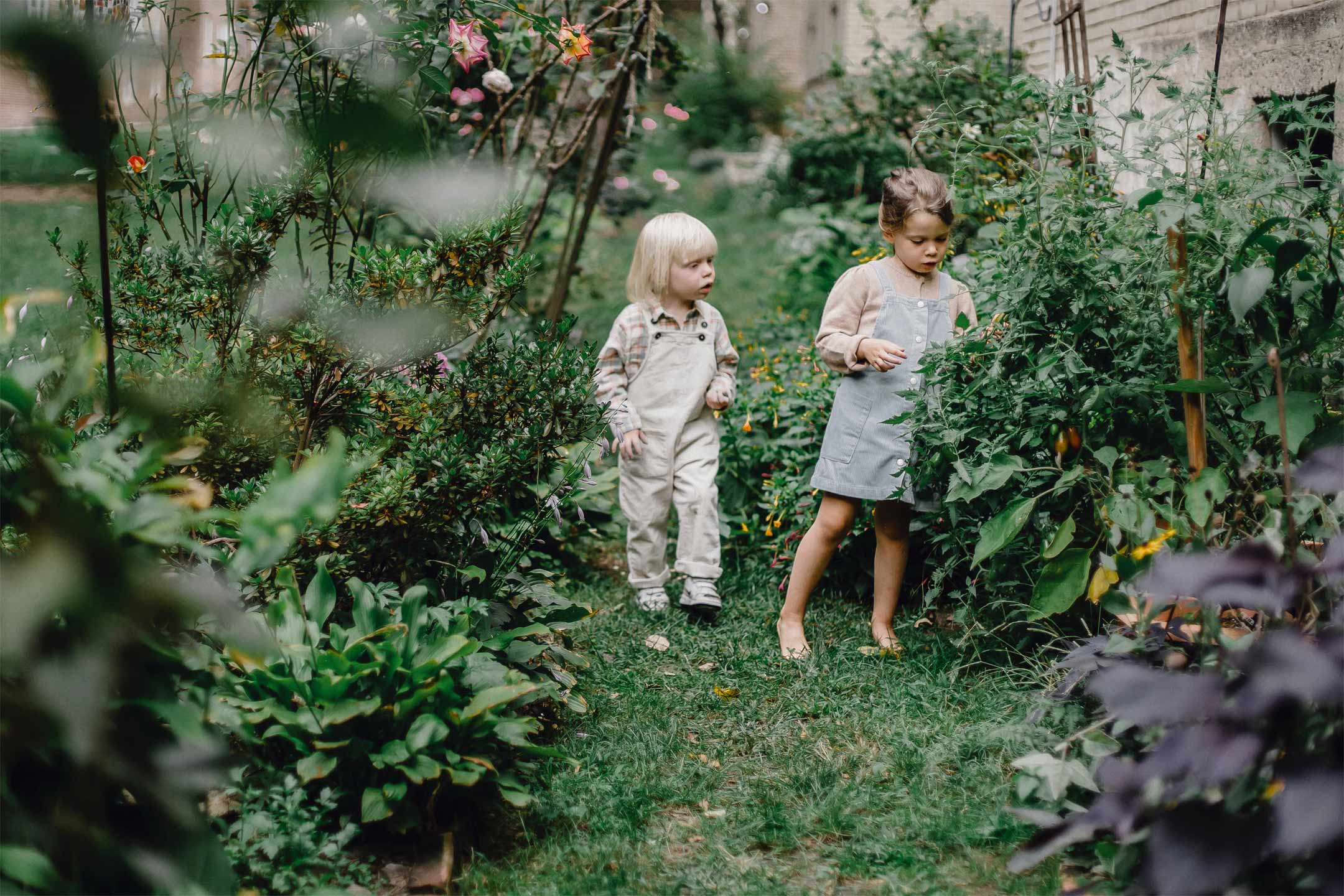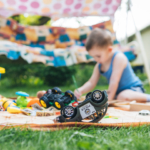
16 Jun Growing Up Growing
Zoë Bishop believes that by getting kids into gardening, we sow the seeds of a successful future.
We all want our kids to survive. It is an instinct that takes hold of parents early and then drives our actions for the rest of our lives.
To increase their chances of survival we teach our kids the skills that will enable them to cope and ultimately thrive in the world. We drum into them the ritual of crossing the road safely, the mantra that fire is hot and the importance of always saying thank you. But there is one basic skill that is often absent from the list on raising children in the modern world. It is a skill that was once taught by example for thousands of years and it is one of the key factors in the survival of our species: the ability to grow our own food.
It was an overgrown garden that convinced me to rent the house in which my first baby was born. It had a gnarled old apple tree, and among the twisting weeds it was obvious where a little vegie patch should go – if I only knew how to make one.
I had murdered every pot plant I had ever owned and so believed that I couldn’t grow anything. My whole family is comically hopeless with plants. Gardening was something other people did – people with those magical ‘green thumbs’. Our fruit and vegetables had always come from the supermarket. But my baby’s imminent arrival had inspired me. If I couldn’t grow a tomato, how was I going to raise a child?
So my partner succumbed to my pregnancy whim and dug up the ground. A friend brought over a tray of seedlings and we pushed them into the earth. She showed me that planting is easy. And when my baby was born, so were the golden heads of sunflowers and shiny red tomatoes. And the confidence to tend a garden was added to the list of things that I could teach my son.
Gardening skills come naturally to children. Digging, making holes, pouring water, patting down the earth and burying things are all activities demonstrated by children as soon as they sit in a sandpit.
 My son Azlan and I began by planting seedlings into pots together. Placing a seedling in a hole and tucking in the soil around it immediately triggered his nurturing side. He began noticing and caring for the other plants around us. From there, our gardening skills grew together. We moved from pots to planting herbs in the ground and, after moving to a place with a bigger garden, created our first real vegie patch.
My son Azlan and I began by planting seedlings into pots together. Placing a seedling in a hole and tucking in the soil around it immediately triggered his nurturing side. He began noticing and caring for the other plants around us. From there, our gardening skills grew together. We moved from pots to planting herbs in the ground and, after moving to a place with a bigger garden, created our first real vegie patch.
By the time his little brother Harlem was born, we had promoted ourselves to growing from seeds. Harlem loves helping to push the seeds into the soil and watering them with his little watering can. He gets right into the soil when we garden and, now that he is two years old, he has learnt to step around the plants. He carefully picks coriander and parsley to put on his Vegemite toast.
It’s not always blissful gardening with my kids. Seedlings have been stomped on, ejected from pots and cut up to make ‘babies’. But I try not to get too precious about the aesthetic outcome of our garden, and to remember that it is all part of their learning process (and mine). Activities such as finding worms are useful when the boys start to lose focus or get destructive. Our garden has a special bare batch especially for digging up worms.
The tradition of having a vegie patch in the backyard has been squeezed from the social psyche by dwindling time, space and necessity. For many city and suburban kids, a grassy park is their strongest connection to nature. But kids anywhere can learn these basic skills by having just a tiny garden in the backyard or on the balcony, or even on a sunny windowsill.
When I visited my son’s classroom recently, I was introduced to his bean – a seedling in a pot proudly marked with his name. While learning to read and write, his class is also learning that soil, water and light make plants grow.
When my son’s bean grew too tall for the classroom window ledge, we transplanted it to his own vegie patch at home. Last summer he also had great success with strawberries, tomatoes and corn. He would come running whenever a tomato or strawberry was ripe, carefully cutting it into four to share it with everyone.
The flavour of fruit is particularly sweet to Azlan because he watched it magically grow. But its sweetness is even more poignant to me. I know that my son will never think that he can’t grow food. And I hope that this makes his chances of survival higher.



